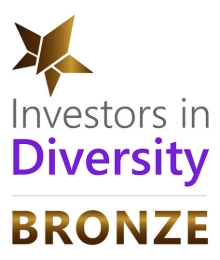Irish doctoral student experience and standard of awards endorsed by international report
A new international report has commended Irish higher education institutions for ensuring both the standard of awards, and the quality of student experience, by 'professionalising' the delivery of postgraduate research education and training in Ireland.
The report was published by an international expert team within the European University Association (EUA) and was commissioned by the Higher Education Authority (HEA), the Irish Universities Association (IUA), Quality and Qualifications Ireland (QQI) and the Technological Higher Education Association (THEA).
The full report is entitled 'The National Framework for Doctoral Education in Ireland: Report on its Implementation by Irish higher education institutions' and is available here.
Simon Harris TD, Minister for Further and Higher Education, Research, Innovation and Science, welcomed the report's publication and said:
“This EUA report has confirmed that the National Framework for Doctoral Education has been well embedded in our higher education institutions and is having a positive impact – this is very encouraging and I'd like to thank the institutions for their continuing commitment to the implementation of the Framework.
Research and innovation is fundamental to addressing our local and global economic and social challenges now and in the years ahead. It is vital that we continually enhance our research degree programmes so that our research students are equipped with the necessary skills and competencies to make a valuable contribution to society, and that Ireland is internationally recognised for the quality of its research degree provision.
The report has highlighted a number of areas where further improvements can be made and I will be working with my officials and key stakeholders to ensure that progress is achieved in the coming period."
The expert team investigated the level of implementation of the National Framework for Doctoral Education (NFDE), identified examples of good practice within the Irish higher education sector and provided recommendations on further implementation and deepening the practice of provision.
The report recognised that Irish higher education institutions have reformed their doctoral education in line with developments in continental Europe through broad consultation, and the provision of a coherent set of guidance documents through the NFDE. It further concluded that the NFDE has provided a common foundation for practices and processes linked to postgraduate research provision.
The report makes a number of recommendations regarding the future course of doctoral education:
- Enhance collaboration between higher education institutions in the delivery of doctoral training;
- Improve the Postgraduate Research (PGR) student representation and involvement in governance;
- Improve the career development supports offered to postgraduate researchers students;
- Work more closely with alumni and employers in developing modules in “soft skills" training;
- Develop a system to track the careers of research graduates, to inform improvements in research degree programmes;
- Revamp the current NFDE Advisory Forum to build a community of practice;
- Improve the promotion of the “Irish doctorate" internationally, specifically targeting prospective international students and partners.
These recommendations are under active consideration by the NFDE Advisory Forum and many recommendations have already been actioned. A working group is being established to develop a research careers profile to offer greater clarity on the research student experience and research student career outcomes and pathways.
Increased representation of postgraduate students in institutional decision making and governance regarding doctoral education is currently also being considered by the NFDE in collaboration with the National Student Engagement Programme (NStEP).
In the presentation of its report, the EUA team chair and Senior Advisor, Dr Andrée Sursock complimented the collaborative approach across the Irish higher education system. She stated that “broad collaboration of all stakeholders in policy development and implementation is one of the strengths of the Irish Higher Education sector," and added, “I am also impressed with the attention that has been paid over the years to the quality of all aspects and cycles of higher education and the consensus achieved, notably around the doctorate framework."
She also highlighted further areas for future consideration regarding doctoral education in Ireland. These included the funding of HEIs and doctoral students, the growing importance of ethics training internationally, the open science movement and the likely impact of COVID-19 and the SDG on interdisciplinary research, which will require rethinking how to deliver the doctorate.
The HEA and QQI as co-chairs of the NFDE Advisory Forum welcomed the EUA report commenting that “it will be vital in prioritising the future work of the Advisory Forum and to help address the challenges that face doctoral education both nationally and internationally".


